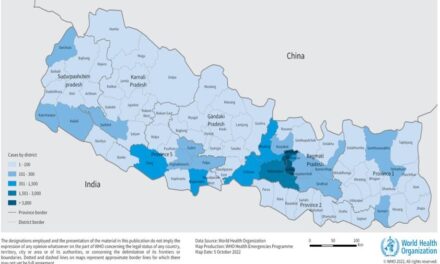New Delhi: Ahead of World Diabetes Day on Wednesday, a recent report by the International Diabetes Federation (IDF) highlights that 86% of people in India living with diabetes have experienced mental health issues such as anxiety, depression, or other emotional challenges linked to their condition. The report underscores the extent to which diabetes impacts mental health, painting a more concerning picture than previously known.
Based on a global survey spanning seven countries—India, Brazil, Indonesia, Pakistan, South Africa, Spain, and the US—the findings reveal that diabetes-related mental health issues are prevalent worldwide, with 77% of diabetics reporting similar challenges. However, the numbers in India are higher, particularly among women, with 90% of Indian women with diabetes experiencing some form of mental distress, compared to 84% of men.
The survey identified the fear of diabetes-related complications as the primary contributor to mental health struggles, affecting 76% of Indian respondents. Other key stressors included the daily burden of diabetes management (72%), challenges in accessing healthcare support (65%), and obtaining medications and supplies (61%).
The report also highlighted a phenomenon known as “diabetes burnout,” affecting 85% of diabetics in India. Burnout, characterized by feelings of frustration and being overwhelmed, has led 73% of these individuals to interrupt or abandon their treatment regimen. The consequences of this can be severe, compounding physical health risks and worsening emotional distress.
Prof. Peter Schwarz, President of the IDF, noted, “While diabetes affects both physical and mental well-being, care often focuses only on blood sugar management, leaving many overwhelmed.” He emphasized the need to “look beyond blood sugar for a better diabetes life,” advocating for a more comprehensive approach that considers mental health as part of diabetes care.
With nearly 80% of diabetics in India expressing a desire for better emotional and mental support from healthcare providers, the report serves as a call to action. Addressing diabetes must go beyond managing blood sugar levels to encompass the mental and emotional aspects, ultimately helping patients achieve a balanced and healthier life.











